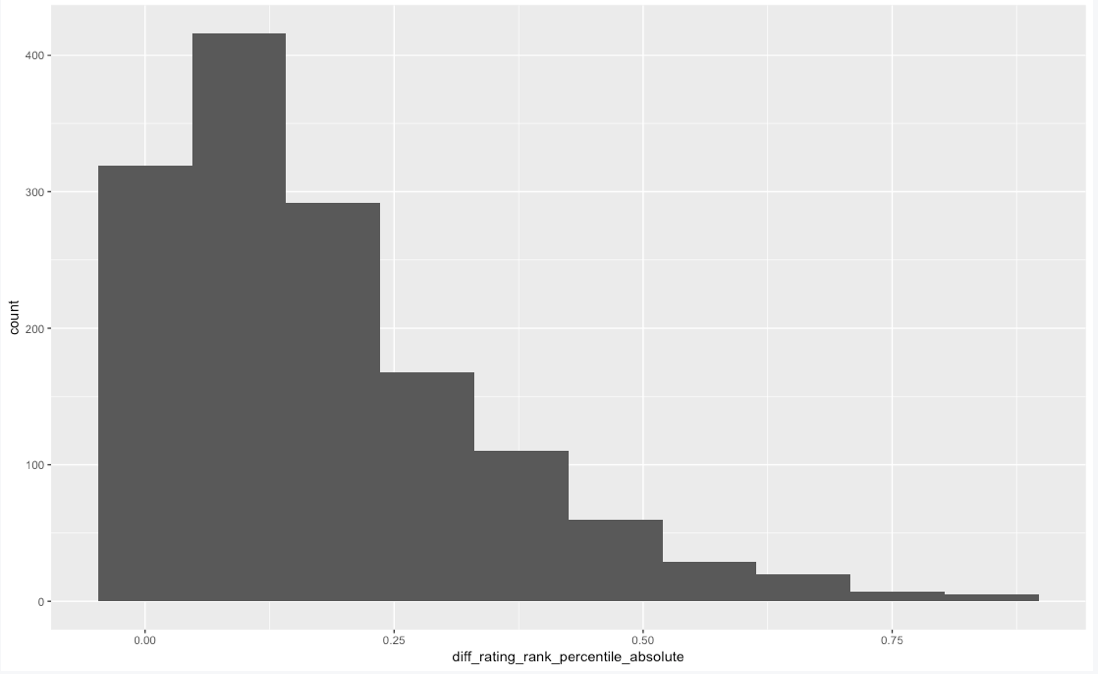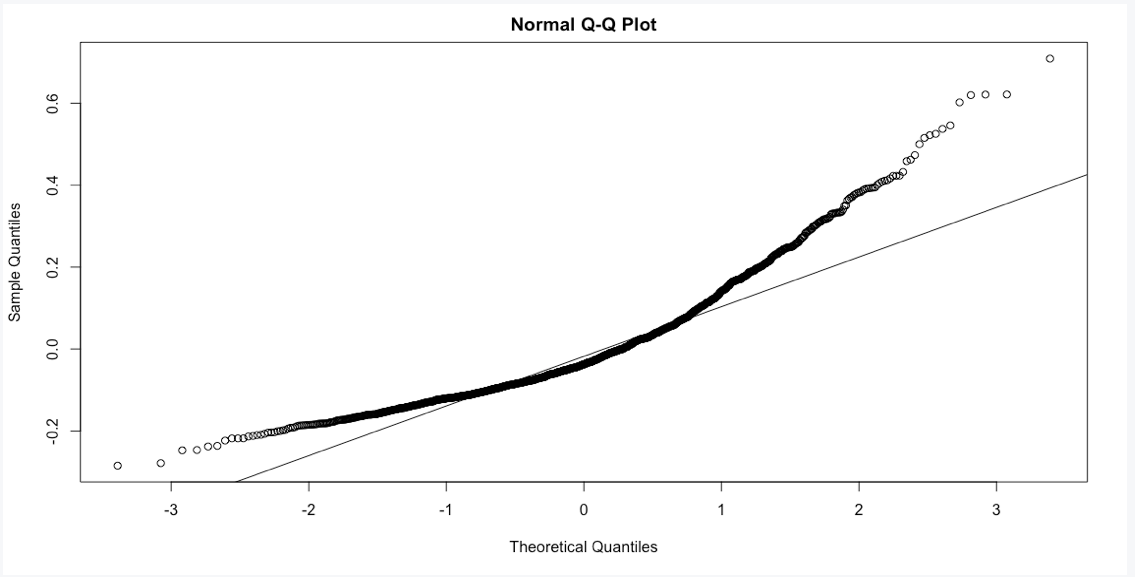I'm wondering what a suitable regression model would be to predict a bounded, continuous, non-normally distributed dependent variable from a binary explanatory variable with partially crossed data.
I'm trying to see how the scoring procedure (binary) in online challenges influence the predictability of outcomes. I measure predictability as the absolute difference between the rank percentile of a participant in a challenge and the overall rating percentile of a participant at that time. If a challenge is predictable that means that highly rated participants also rank highly (i.e. low difference between these two values).
So basically: $predictability = abs(percentile(rank)_{in\_challenge} - percentile(rating)_{in\_challenge})$
So the dependent variable is the difference between two percentile values and is hence bounded between 0 and 1 (or 0 and 100 depending on the scale) and has a peculiary distribution with a couple of 0s a lot of low values and few high values. This is what the distribution of the dependent variable looks like:

Now this is obviously not normally distributed as it is bounded and the mode and median are far to the left.
Each observation (n = 1425) in my dataset is the participation of an individual in a challenge. Hence, I have partially crossed data as not all participants contribute in all of the challenges. Further, the data is divided into strata of comparable challenges that only differ significantly in the treatment variable (i.e. scoring procedure). Therefore, as I understand, I need to fit a mixed effects model with random effects for the individual and the strata as well as an interaction between the random effects. In R I use the lme4 package to do so:
lmer(predictability ~ treatment + (1|coder_id) + (1|stratum) + (1|coder_id:stratum),
data = my_data)
However, I don't think an ordinary linear model is appropriate here, because as the QQ-Plot shows, the residuals are not normally distributed:

Hence my question: What would be a suitable model for my data?
Thank you very much for any help.
